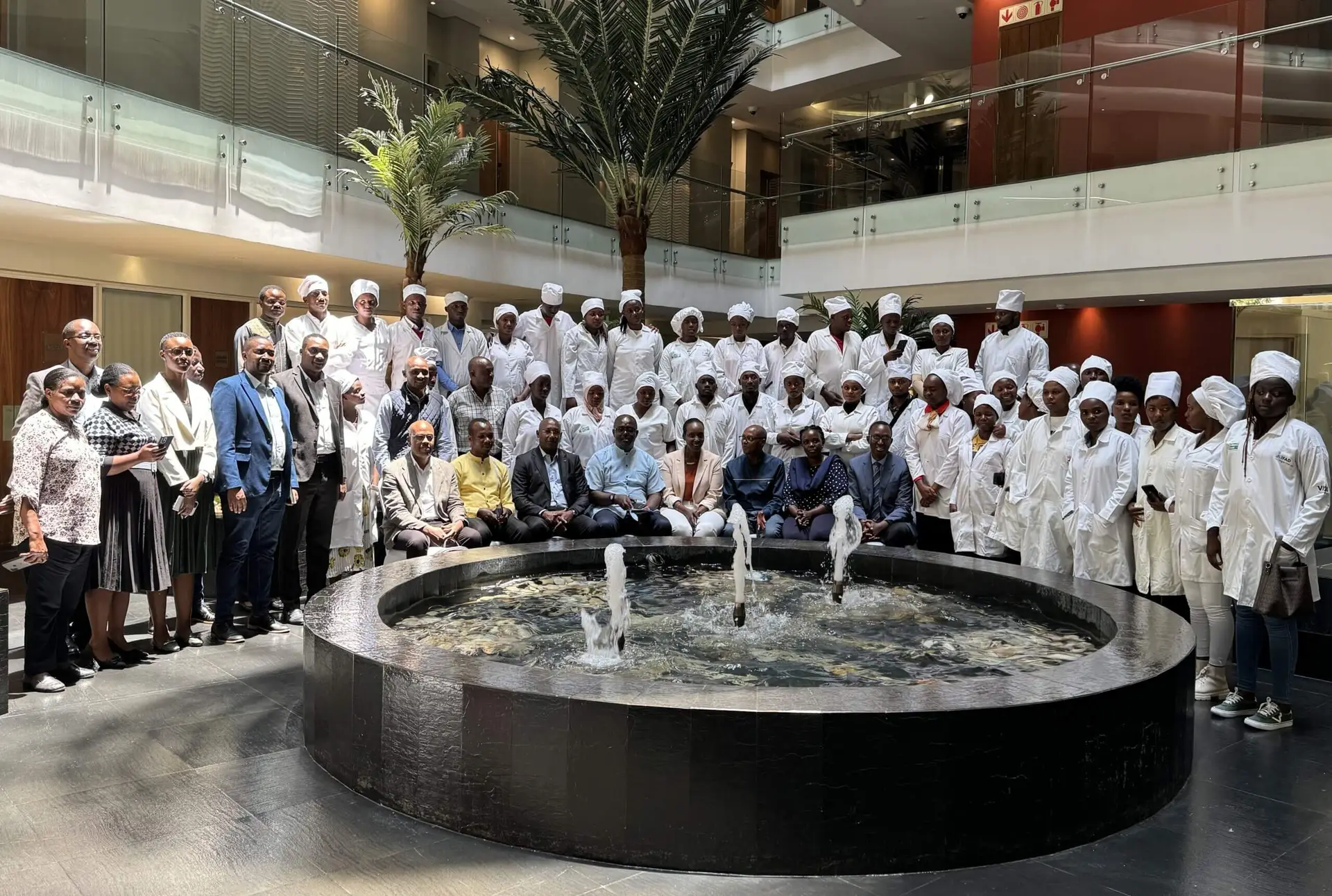In collaboration with the Rwanda Inspectorate, Competition, and Consumer Protection Authority (RICA), TradeMark Africa (TMA) has kicked off a six-month training for meat inspectors to enhance compliance with quality standards, and sanitary and phytosanitary (SPS) measures in Rwanda’s meat value chain. A first of its kind in Rwanda, the training will focus on strengthening of food safety standards and ensuring market access for both domestic and export meat products. Forty private meat inspectors are taking part in the training sessions, as part of the implementation of the Value-added Initiative to Boost Employment (VIBE).
“The training is an important step towards strengthening the skills of private meat inspectors and enhance the level of compliance with the prescribed industry standards for a safer, more competitive and profitable meat value chain,” said Doreca Musenga, VIBE Program Manager at TradeMark Africa. The participants will undergo an intensive hands-on training on all aspects of meat inspection for the first month, and thereafter immerse themselves for practical experience at local abattoirs for five months. The training programme will feature on-going assessments and coaching sessions to ensure that participants gain the necessary skills and knowledge for meat inspection.
This exercise will not only enhance compliance with both domestic and international standards but also create job opportunities, especially for young people, within the meat industry value chain.VIBE, which is spearheading the training, is jointly implemented by TMA, the International Trade Centre (ITC), in partnership with Mastercard Foundation. Implemented in Rwanda, the programme will enable creation of dignified job opportunities for women and youth in micro, small, and medium-sized enterprises (MSMEs) in the horticulture, poultry, meat and dairy value chains. These interventions will serve as a catalyst for driving economic growth and increasing formal employment, especially for vulnerable or marginalised groups such as women, refugees, and persons with disabilities.


